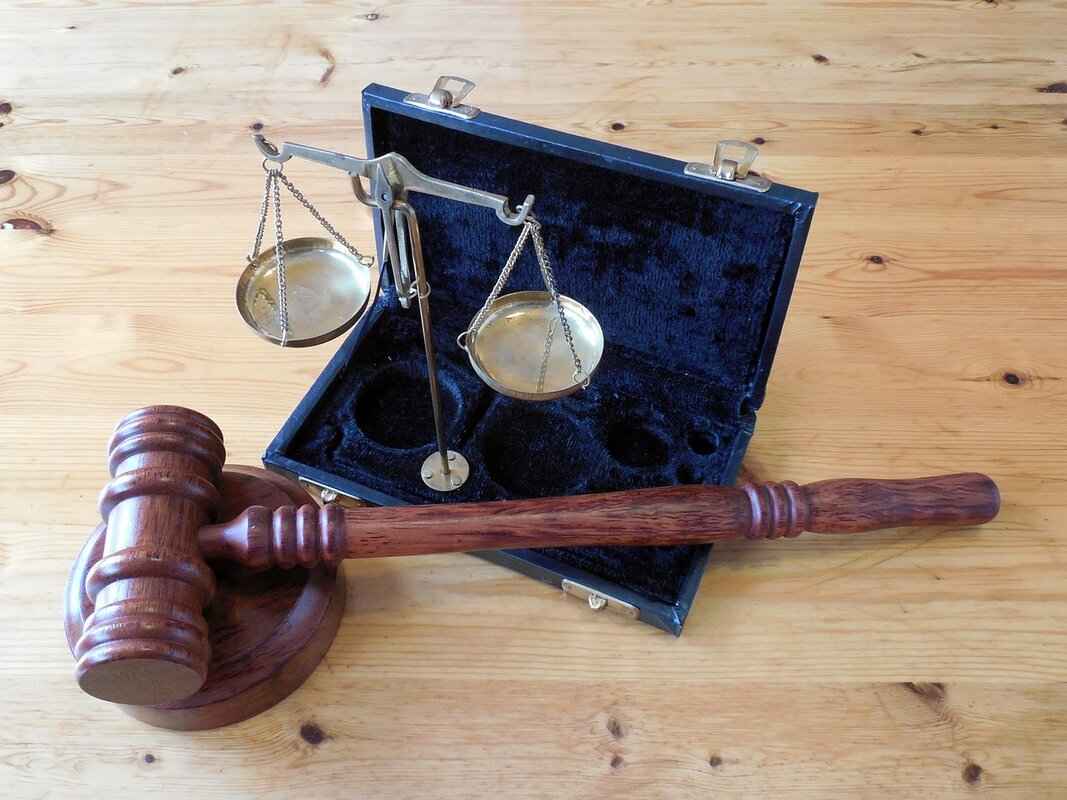This article delves into the complex landscape of attorney fees in the United States, specifically addressing the conditions under which a losing party may be obligated to cover the prevailing party’s legal costs. Understanding these circumstances is crucial for anyone involved in legal proceedings.
Understanding Attorney Fees in Legal Cases
Attorney fees can have a profound impact on the financial outcome of a legal dispute. Generally, there are two main types of attorney fees: hourly fees, where clients pay for each hour of legal work, and contingency fees, where the attorney receives a percentage of the awarded amount only if the case is won. Each structure has its own implications for clients, especially in terms of risk and potential financial burden.
What is the American Rule?
The American Rule states that each party in a legal dispute is responsible for their own attorney fees, unless a statute or contract stipulates otherwise. This principle is rooted in the idea of fairness, ensuring that individuals are not deterred from pursuing legitimate claims due to the fear of incurring additional costs.
Exceptions to the American Rule
Despite the prevalence of the American Rule, several exceptions exist that may require a losing party to pay the prevailing party’s attorney fees. Understanding these exceptions is vital for parties involved in litigation.
- Statutory Exceptions: Certain laws allow for fee-shifting in specific cases, such as civil rights violations or consumer protection disputes. For example, the Fair Housing Act and the Equal Access to Justice Act provide provisions for recovering attorney fees.
- Contractual Agreements: Parties may include provisions in their contracts that specify who is responsible for attorney fees in the event of a dispute. It is essential to draft these clauses clearly to avoid ambiguity.
Factors Influencing Attorney Fee Awards
When a court considers awarding attorney fees, several factors come into play. These include the nature of the case, the conduct of the parties, and the reasonableness of the fees requested. Courts typically assess whether the prevailing party acted in good faith and whether their legal fees were necessary and reasonable.
How to Request Attorney Fees
If you emerge victorious in a legal battle, you may wish to seek reimbursement for your attorney fees. This process involves filing a formal motion with the court, which must include detailed information regarding the fees incurred.
- Filing a Motion for Fees: This motion should outline the basis for the request, including the legal justification for fee-shifting.
- Supporting Documentation: To bolster your case, provide documentation such as billing statements, time logs, and evidence of the complexity of the case.
Potential Consequences of Not Paying Attorney Fees
Failure to pay awarded attorney fees can lead to serious legal repercussions, including garnishment of wages, liens on property, and further legal action to enforce the award. Understanding these risks is crucial for any party involved in litigation.
Negotiating Attorney Fees with the Opposing Party
In some instances, parties may find it beneficial to negotiate attorney fees prior to or after a judgment. This can lead to a mutually agreeable settlement that avoids further litigation costs. Effective negotiation strategies can include presenting a clear rationale for the requested fees and being open to compromise.
Consulting with an Attorney
Navigating the complexities of attorney fee obligations can be daunting. It is advisable to consult with an experienced attorney who can provide insights tailored to your specific situation and help you understand your rights and obligations regarding attorney fees.

Understanding Attorney Fees in Legal Cases
Attorney fees play a crucial role in the overall financial landscape of legal proceedings. Understanding the various types of attorney fees and their structures can significantly influence the financial outcome of a case. This section will provide a comprehensive overview of attorney fees, including their types, common structures, and factors that can affect the costs involved.
Types of Attorney Fees
- Hourly Fees: This is the most common fee structure where attorneys charge a set rate for each hour they work on a case. Clients are billed for the time spent on various tasks such as research, drafting documents, and attending court hearings.
- Flat Fees: In certain cases, attorneys may charge a flat fee for specific services, such as drafting a will or handling a straightforward divorce. This fee structure provides clients with clarity on the total cost upfront.
- Contingency Fees: Often used in personal injury cases, contingency fees mean that the attorney only gets paid if they win the case. The attorney’s fee is typically a percentage of the awarded amount, which can incentivize them to secure the best possible outcome for their clients.
- Retainer Fees: Some attorneys require a retainer fee, which is an upfront payment that secures their services. This fee is often used to cover initial costs and may be drawn from as the attorney works on the case.
Fee Structures in Litigation
Understanding how these fees are structured is essential for clients. Many attorneys provide detailed agreements outlining their fees, which can include billing increments, additional costs such as court fees, and potential expenses for expert witnesses. Clients should always review these agreements carefully to avoid any surprises later in the process.
Factors Influencing Attorney Fees
- Complexity of the Case: More complex cases typically require more time and resources, leading to higher fees.
- Attorney Experience: Experienced attorneys often charge higher rates due to their expertise and track record of success.
- Geographic Location: Fees can vary significantly depending on the region, with urban areas generally having higher rates than rural locations.
- Client’s Financial Situation: Some attorneys may offer flexible payment plans or reduced fees based on a client’s financial circumstances.
Importance of Transparency
It is vital for clients to have open discussions with their attorneys about fees. Transparency regarding potential costs and billing practices can help build trust and ensure that clients are prepared for the financial commitments associated with their legal matters.
Conclusion
In summary, understanding attorney fees and their structures is essential for anyone involved in legal proceedings. By being informed about the types of fees, the factors that influence them, and the importance of clarity in attorney-client agreements, individuals can better navigate the financial aspects of their legal cases.

What is the American Rule?
The American Rule is a fundamental principle in U.S. law that stipulates each party in a legal dispute is responsible for their own attorney fees, regardless of the outcome of the case. This rule stands in contrast to the English Rule, where the losing party typically covers the prevailing party’s legal costs. Understanding the nuances of the American Rule is essential for anyone involved in litigation, as it shapes the financial landscape of legal battles.
The origins of the American Rule can be traced back to the desire to promote access to justice. By ensuring that parties do not face the risk of incurring substantial legal fees from their opponents, the rule encourages individuals to pursue legitimate claims without fear of financial ruin. This principle is enshrined in various legal precedents and is generally accepted across the United States.
However, the American Rule is not without its exceptions. In certain circumstances, a losing party may be required to pay the attorney fees of the prevailing party. These exceptions can arise from specific statutes or contractual agreements. For instance, many civil rights laws and consumer protection statutes allow for fee-shifting, meaning that if the plaintiff prevails, the defendant may be ordered to pay their legal fees. This serves to deter unlawful conduct by providing a financial incentive for individuals to pursue valid claims.
Moreover, parties can explicitly agree to attorney fee provisions in their contracts. Such agreements can specify that the losing party will cover the legal costs of the prevailing party. This practice is common in commercial contracts, where clear terms regarding attorney fees can prevent disputes over costs if a legal issue arises.
When considering whether to pursue a claim, it is crucial to evaluate the potential for attorney fee awards. Courts often consider various factors, including the nature of the case, the conduct of the parties, and the reasonableness of the fees requested. For example, if a party engages in bad faith actions during litigation, a court may be more inclined to award attorney fees to the opposing party.
If you find yourself in a position where you may be entitled to attorney fees, it is essential to understand the procedural steps required to request them. This typically involves filing a motion for fees with the court, which should include detailed information about the legal services rendered and the basis for the request. Supporting documentation, such as billing statements and affidavits, is also necessary to substantiate your claim.
Failing to pay awarded attorney fees can have serious legal and financial repercussions. Courts may impose additional penalties, including interest on the unpaid amount or even contempt of court. Therefore, it is vital to address any attorney fee obligations promptly to avoid further complications.
In some cases, parties may prefer to negotiate attorney fees before or after a judgment is rendered. Engaging in negotiations can lead to more favorable outcomes and can save both parties significant time and resources. Effective negotiation strategies may include discussing the merits of the case, the potential for appeal, and the overall financial implications of the legal fees.
Finally, navigating the complexities of attorney fee obligations can be challenging. It is highly advisable to consult with an experienced attorney who can provide guidance tailored to your specific situation. An attorney can help clarify your rights and obligations, ensuring that you make informed decisions throughout the legal process.

Exceptions to the American Rule
The legal landscape in the United States is primarily governed by the American Rule, which states that each party is responsible for their own attorney fees. However, there are notable exceptions where a losing party may be required to cover the attorney fees of the prevailing party. Understanding these exceptions is crucial for anyone involved in litigation, as they can significantly affect the overall financial implications of a case.
One of the most common exceptions to the American Rule arises from specific statutes that allow for fee-shifting. These laws typically pertain to particular types of cases, such as:
- Civil Rights Cases: Under statutes like the Civil Rights Attorney’s Fees Awards Act, prevailing parties in civil rights litigation can recover attorney fees.
- Consumer Protection Laws: Many state and federal consumer protection laws provide for the recovery of attorney fees to deter unfair practices.
- Environmental Litigation: Certain environmental statutes allow for fee recovery to encourage enforcement of environmental laws.
These statutory provisions are designed to promote access to justice and ensure that individuals or groups can pursue claims without the burden of prohibitive legal costs.
Another significant exception to the American Rule occurs when parties enter into contractual agreements that include provisions for attorney fees. Such clauses can specify that the losing party is responsible for the prevailing party’s legal expenses. It is essential for these agreements to be:
- Clearly Written: Ambiguities in contract language can lead to disputes over fee recovery.
- Mutually Agreed Upon: Both parties must consent to the terms regarding attorney fees.
These contractual provisions can be particularly common in business agreements, where the potential for litigation is higher, and parties seek to mitigate risks associated with legal disputes.
When assessing whether to award attorney fees, courts consider various factors, including:
- The Nature of the Case: Complex cases that require extensive legal work may favor fee awards.
- The Conduct of the Parties: If one party engages in unreasonable behavior or fails to comply with court orders, this may influence the court’s decision to award fees.
These factors help ensure that fee awards are fair and justified based on the circumstances of each case.
If you find yourself as the prevailing party, you may wish to request attorney fees. The process typically involves:
- Filing a Motion: This formal request outlines your entitlement to fees and the basis for your claim.
- Providing Documentation: Supporting documents, such as billing records and a detailed account of the work performed, are essential to substantiate your request.
Failure to pay awarded attorney fees can lead to serious legal and financial consequences. Courts may impose additional penalties, including:
- Interest Charges: Accrued interest on unpaid fees can increase the total amount owed.
- Contempt of Court: Non-compliance with a court order to pay fees can result in contempt proceedings.
In certain situations, parties may negotiate attorney fees either before or after a judgment. Effective negotiation strategies include:
- Open Communication: Discussing fee expectations openly can prevent misunderstandings.
- Settlement Offers: Proposing a settlement that includes attorney fees can be beneficial for both parties.
Understanding these exceptions and the surrounding legal framework is vital for anyone involved in litigation. Consulting with an experienced attorney can provide clarity on your rights and obligations regarding attorney fees.
Statutory Exceptions
When it comes to legal disputes, the question of whether a losing party must pay the opposing party’s attorney fees is a significant concern. Particularly in the United States, various statutes provide specific provisions for fee-shifting, allowing the prevailing party to recover attorney fees in certain types of cases. This section delves into the that can impose such liabilities.
One of the most notable areas where fee-shifting is applicable is in civil rights cases. Under federal statutes such as the Civil Rights Attorney’s Fees Awards Act of 1976, prevailing parties in civil rights litigation are entitled to recover reasonable attorney fees. This law aims to encourage individuals to pursue their rights under civil rights laws without the fear of incurring prohibitive legal costs. For example, if a plaintiff successfully proves discrimination under Title VII of the Civil Rights Act, they can seek reimbursement for their legal expenses from the losing party.
Another significant area is consumer protection disputes. Many states have enacted consumer protection laws that allow for fee-shifting to deter unfair business practices. For instance, the Fair Debt Collection Practices Act (FDCPA) permits consumers who win their cases against debt collectors to recover attorney fees. This provision not only serves as a remedy for consumers but also acts as a deterrent against abusive practices by debt collectors.
In addition to civil rights and consumer protection cases, environmental laws also provide for attorney fee recovery in certain situations. The Clean Water Act and the Clean Air Act include provisions that allow prevailing parties to recover costs associated with litigation aimed at enforcing compliance with environmental regulations. This facilitates accountability and encourages private citizens and organizations to take legal action against violators of environmental laws.
Moreover, family law statutes in several jurisdictions may allow for the recovery of attorney fees in divorce or custody disputes, particularly when one party demonstrates financial need or when the other party has engaged in misconduct. Courts often consider the financial circumstances of both parties and the conduct during the proceedings when deciding on fee awards.
It is essential for litigants to understand the specific statutes applicable to their cases, as the rules governing attorney fee recovery can vary significantly by jurisdiction and the nature of the dispute. Additionally, some statutes may require the prevailing party to demonstrate that the losing party’s position was not just unreasonable, but also that it was pursued in bad faith.
In conclusion, statutory exceptions to the American Rule provide essential avenues for fee-shifting in various legal contexts. Understanding these exceptions can empower parties to make informed decisions about pursuing litigation and managing potential financial liabilities. Consulting with an experienced attorney can provide further clarity on how these laws apply to specific cases, ensuring that individuals are adequately prepared for the financial implications of their legal actions.
Contractual Agreements
In the realm of legal disputes, the question of who bears the burden of attorney fees can be a significant concern for parties involved. One way to address this issue is through , where parties explicitly outline their responsibilities regarding attorney fees in the event of a dispute. This section delves into how these agreements can facilitate fee-shifting and the critical role that precise language plays in ensuring enforceability.
Understanding Fee-Shifting in Contracts
Fee-shifting refers to the practice where the losing party in a legal dispute is required to pay the attorney fees of the prevailing party. This concept is often embedded in contracts, particularly in business agreements, where parties may want to deter frivolous lawsuits or ensure that they can recover costs if they prevail. For instance, a contract may state, “In the event of a dispute, the losing party shall pay all reasonable attorney fees incurred by the prevailing party.” Such provisions can significantly alter the dynamics of litigation, providing a clear incentive for parties to resolve disputes amicably.
The Importance of Clear Language
When drafting contractual provisions related to attorney fees, clarity is paramount. Ambiguous language can lead to misunderstandings and disputes over the interpretation of the agreement. It is advisable for parties to use specific terms and conditions, including:
- Definition of “Prevailing Party”: Clearly define who qualifies as the prevailing party to avoid confusion.
- Scope of Fees: Specify whether the agreement covers only attorney fees or if it includes other related expenses, such as court costs and expert witness fees.
- Reasonableness Standard: Include criteria for what constitutes “reasonable” attorney fees to prevent disputes over billed amounts.
Negotiating Fee-Shifting Provisions
Negotiating fee-shifting provisions can be a strategic move in contract discussions. Parties may consider the potential risks and benefits associated with these clauses. For example, a party with greater bargaining power may insist on including a fee-shifting clause to protect against the financial burden of litigation. Conversely, a party with less leverage may seek to limit or exclude such provisions to avoid unexpected costs.
Enforceability of Attorney Fee Provisions
For a fee-shifting provision to be enforceable, it must comply with applicable laws and regulations. Courts generally uphold these agreements as long as they are clear and reasonable. However, certain jurisdictions may have specific rules regarding the enforceability of attorney fee clauses, particularly in consumer contracts. Thus, it is essential for parties to consult with legal counsel when drafting or reviewing contracts that include fee-shifting provisions.
Conclusion
In summary, contractual agreements that include provisions for attorney fees can play a crucial role in shaping the financial landscape of legal disputes. By understanding the mechanics of fee-shifting and the importance of precise language, parties can better protect their interests and navigate the complexities of litigation.

Factors Influencing Attorney Fee Awards
In the realm of legal disputes, the question of whether the losing party must pay the prevailing party’s attorney fees is a complex one. Several factors can significantly influence a court’s decision regarding attorney fee awards. Understanding these factors is crucial for both parties involved in litigation.
- Nature of the Case: The type of case plays a pivotal role in determining whether attorney fees will be awarded. For instance, cases involving civil rights violations or consumer protection often have statutory provisions that allow for fee-shifting. In contrast, in standard contract disputes, the American Rule typically applies, requiring each party to bear its own costs unless otherwise stipulated.
- Conduct of the Parties: Courts often consider the behavior of both parties throughout the litigation process. If one party engages in frivolous litigation or exhibits bad faith actions, such as unnecessarily prolonging the case or refusing to settle, the court may be more inclined to award attorney fees to the opposing party.
- Settlement Offers: The courts may also look at whether the parties made reasonable settlement offers during the litigation. If the prevailing party made a fair offer that was rejected by the losing party, this could influence the court’s decision to award fees.
- Legal Precedents: Previous court rulings in similar cases can also impact the outcome. Courts often rely on established legal precedents when making decisions about attorney fee awards. If there is a strong precedent supporting fee-shifting in a particular type of case, it may sway the court’s decision.
- Jurisdictional Variations: Different jurisdictions may have varying rules regarding attorney fees. Some states have specific statutes that govern fee awards, while others may leave it to the discretion of the court. Understanding the local laws is essential for predicting the likelihood of an attorney fee award.
- Complexity of the Case: The complexity of the legal issues involved can also influence the court’s decision. Cases that require extensive legal research, expert testimony, or significant time investment may justify an award of attorney fees, as they can impose a higher burden on the prevailing party.
- Financial Resources of the Parties: In some situations, a court may consider the financial circumstances of both parties. If one party is significantly disadvantaged financially, the court may take this into account when deciding on attorney fee awards.
In conclusion, the decision to award attorney fees is multifaceted and influenced by a variety of factors. Understanding these elements can help both parties navigate the complexities of litigation and prepare for the potential financial implications of their case.

How to Request Attorney Fees
If you find yourself in the position of the prevailing party in a legal case, it is essential to understand the process of requesting attorney fees. This request not only helps to recoup costs incurred during litigation but also serves as a recognition of the legal resources expended to achieve a favorable outcome. Below, we outline the critical steps and considerations involved in making such a request in court.
Understanding the Basis for Your Request
Before initiating a request for attorney fees, it is important to identify the basis for your claim. This can stem from:
- Statutory Provisions: Certain laws explicitly allow for the recovery of attorney fees in specific types of cases.
- Contractual Agreements: If a contract between the parties includes a clause for attorney fees, you may be entitled to recover those costs.
Filing a Motion for Fees
The first procedural step in requesting attorney fees is to file a motion with the court. This formal request must include:
- Your Legal Argument: Clearly state why you believe you are entitled to attorney fees.
- Supporting Evidence: Provide documentation that substantiates your claim, including invoices and billing statements.
- Affidavit of Services: An affidavit detailing the time spent on the case and the hourly rates charged can strengthen your request.
Supporting Documentation
To effectively support your motion, you should gather the following types of documentation:
- Invoices showing hourly rates and time spent.- Evidence of the complexity and significance of the case.- Any previous agreements regarding attorney fees.
Consideration of Factors Influencing Award
When the court evaluates your request for attorney fees, several factors may influence its decision:
- The Nature of the Case: Courts often consider whether the case involved significant legal issues or complexities.
- Conduct of the Parties: If the opposing party acted in bad faith or caused unnecessary delays, this may favor your request.
Possible Outcomes of Your Request
Once your motion has been filed, the court will review the evidence and may schedule a hearing. Possible outcomes include:
- Full Award: The court may grant the full amount of fees requested.
- Partial Award: The court may reduce the amount based on its findings.
- No Award: If the court finds insufficient justification, your request may be denied.
Legal Representation
Given the complexities involved in requesting attorney fees, it is advisable to consult with an experienced attorney. They can provide guidance tailored to your specific situation, ensuring that all procedural requirements are met and that your motion is as compelling as possible.
In summary, successfully requesting attorney fees involves understanding the legal basis for your claim, filing a well-supported motion, and being prepared for court proceedings. By following these steps and seeking professional guidance, you can navigate this process effectively and enhance your chances of recovering your legal costs.
Filing a Motion for Fees
is an essential step for any party seeking to recover attorney fees after prevailing in a legal dispute. Understanding the process and requirements for filing this motion can significantly affect the outcome of your request. Below, we provide a detailed guide on how to properly file a motion for attorney fees, including the necessary information to include and the procedural steps to follow.
When filing a motion for attorney fees, it is crucial to adhere to the specific rules set forth by the court in which your case was heard. Each jurisdiction may have its own procedural requirements, so it is vital to consult the local rules or seek legal advice. Generally, the motion should be filed within a specific timeframe after the judgment has been rendered, typically ranging from 14 to 30 days.
- Title of the Motion: Clearly label your document as a “Motion for Attorney Fees” to ensure it is easily identifiable by the court.
- Introduction: Begin with a brief introduction that outlines the basis for your request, including your status as the prevailing party.
- Legal Basis: Cite the relevant statutes or contractual provisions that entitle you to recover attorney fees. This section should explain why the opposing party should be held liable for your fees.
- Calculation of Fees: Provide a detailed breakdown of the attorney fees you are requesting. Include the hourly rates, the number of hours worked, and any additional costs incurred during the litigation process.
- Supporting Evidence: Attach supporting documentation, such as invoices, retainer agreements, and affidavits from your attorney detailing the work performed. This evidence is critical in substantiating your claim.
After preparing your motion, it must be filed with the court clerk and served on the opposing party. Ensure that you comply with any local rules regarding service, as failure to do so may result in delays or dismissal of your motion. Additionally, you may need to schedule a hearing date, where both parties can present their arguments regarding the fee request.
During the hearing, be prepared to explain the basis for your fees and answer any questions the judge may have. The court will consider several factors when determining whether to grant your motion, including the reasonableness of the fees and the conduct of both parties during the litigation.
In conclusion, filing a motion for attorney fees is a formal process that requires careful attention to detail. By following the appropriate steps and providing thorough documentation, you can increase your chances of a successful outcome. Always consider consulting with an experienced attorney to navigate this complex area of law effectively.
Supporting Documentation
When seeking to recover attorney fees in a legal dispute, it is crucial to understand the type of documentation required to support your request. The court will evaluate your motion based on the evidence and records you present. Here’s a detailed overview of what you need to include:
- Itemized Billing Statements: Provide detailed billing records from your attorney. This should include the date, description of the work performed, and the time spent on each task. Itemization helps the court assess the reasonableness of the fees.
- Contracts or Agreements: If there was a written agreement regarding attorney fees, include it. This document will clarify the terms under which fees are to be paid, including hourly rates or flat fees.
- Affidavit of Counsel: An affidavit from your attorney can serve as a powerful statement regarding the necessity and reasonableness of the fees incurred. This affidavit should outline the attorney’s qualifications and experience.
- Documentation of the Case: Include relevant court documents such as pleadings, motions, and orders that demonstrate the progression of the case. This helps establish the context in which the fees were incurred.
- Evidence of Prevailing Party Status: To justify your request for fees, you must show that you are the prevailing party in the case. This can be proven through a final judgment or settlement agreement.
- Proof of Payment: If you have already paid your attorney, provide proof of payment, such as canceled checks or bank statements, to substantiate your request.
In addition to the above, consider including a summary of the legal principles that support your claim for fees. This could involve referencing relevant statutes or case law that allow for the recovery of attorney fees in your specific situation.
Lastly, it is advisable to keep all documentation organized and clearly labeled. A well-prepared submission not only facilitates the court’s review but also enhances your credibility as a party seeking attorney fees. Always consult with your attorney to ensure that you are including all necessary documentation and adhering to local court rules regarding the submission of fee requests.
By preparing comprehensive and organized supporting documentation, you increase the likelihood of successfully recovering attorney fees, ultimately reinforcing your position in the legal dispute.

Potential Consequences of Not Paying Attorney Fees
When a court awards attorney fees to the prevailing party, it is not merely a suggestion; it is a legal obligation. Failing to pay these awarded fees can lead to serious repercussions, both legally and financially. This section explores the potential consequences that may arise from non-payment, emphasizing the importance of adhering to court orders regarding attorney fees.
One of the most immediate consequences of not paying awarded attorney fees is the risk of contempt of court. When a party fails to comply with a court order, the opposing party can file a motion for contempt. If the court finds the non-paying party in contempt, it may impose sanctions, which can include fines or even jail time in extreme cases. This legal action not only complicates matters further but can also damage the non-compliant party’s credibility in future legal proceedings.
In addition to contempt, interest accrual is another significant consequence. Most courts will allow interest to accrue on unpaid attorney fees from the date they were due. This means that the longer a party delays payment, the more they will owe over time, creating an escalating financial burden. The accumulation of interest can quickly turn a manageable fee into a substantial debt.
Furthermore, the prevailing party may pursue collection actions against the non-paying party. This could involve garnishing wages, seizing assets, or placing liens on property. Such actions can severely impact the financial stability of the non-compliant party, making it difficult for them to secure loans, buy property, or even maintain their current lifestyle.
In some cases, non-payment can lead to additional legal fees. If the prevailing party has to take further legal action to collect the awarded fees, the non-paying party may find themselves responsible for those additional costs as well. This can create a vicious cycle of debt, where the initial obligation multiplies due to the need for ongoing legal intervention.
Moreover, a record of non-payment can have long-term implications. It may negatively affect the non-compliant party’s credit rating, making it challenging to obtain credit in the future. A poor credit score can lead to higher interest rates on loans or even denial of credit applications altogether, further exacerbating financial difficulties.
Lastly, the emotional toll of dealing with the consequences of non-payment should not be underestimated. Legal battles can be stressful, and the fear of potential legal actions, such as garnishments or liens, can lead to anxiety and uncertainty. This emotional strain can affect personal relationships and overall quality of life.
In summary, the consequences of failing to pay awarded attorney fees are multifaceted and can have serious repercussions. From legal penalties such as contempt of court to financial burdens like interest accrual and collection actions, the implications of non-payment extend far beyond the initial obligation. It is crucial for parties involved in legal disputes to understand their responsibilities regarding attorney fees and to take action promptly to fulfill these obligations.

Negotiating Attorney Fees with the Opposing Party
Negotiating attorney fees is a crucial aspect of legal proceedings that can significantly affect the financial outcome for both parties involved. In many cases, parties may find it beneficial to negotiate attorney fees either before a judgment is rendered or after the court’s decision has been made. This section will explore effective strategies for negotiating fees and the numerous benefits that can arise from reaching a settlement.
Understanding the Importance of Negotiation
Negotiating attorney fees can help mitigate costs and foster a more amicable resolution between disputing parties. The negotiation process provides an opportunity to discuss the scope of legal services, the complexity of the case, and the expected outcomes. By addressing these factors, parties can arrive at a fair agreement that reflects the work involved and the value provided by legal representation.
Strategies for Effective Negotiation
- Open Communication: Initiating a dialogue with the opposing party can set the stage for a productive negotiation. Clear communication about each party’s expectations and concerns can lead to a more collaborative approach.
- Research and Preparation: Understanding the typical rates for attorney fees in your jurisdiction and the specifics of your case can strengthen your negotiating position. Prepare to present evidence of the complexity of your case and any extenuating circumstances that may justify a higher or lower fee.
- Flexibility: Being open to various payment structures can facilitate a more favorable agreement. Consider alternatives such as flat fees, hourly rates, or contingency arrangements, depending on what suits both parties’ needs.
- Highlighting Mutual Benefits: Emphasizing how a negotiated agreement can save time and resources for both parties can encourage cooperation. A settlement can prevent prolonged litigation and reduce overall costs.
Benefits of Reaching a Settlement
Reaching a settlement regarding attorney fees can yield several advantages:
- Cost Savings: Settling attorney fees can significantly reduce the financial burden on both parties, avoiding the high costs associated with continued litigation.
- Time Efficiency: A negotiated agreement can expedite the resolution process, allowing both parties to move on without the delays that often accompany court proceedings.
- Preservation of Relationships: Settling fees amicably can help maintain professional relationships, which may be beneficial for future interactions or collaborations.
- Reduced Stress: The uncertainty of a court ruling can be stressful. A negotiated settlement can provide clarity and peace of mind for both parties.
Final Thoughts
In conclusion, negotiating attorney fees is an essential component of the legal process that can lead to more favorable outcomes for both parties. By employing effective strategies and recognizing the benefits of reaching an agreement, parties can navigate this complex aspect of litigation with greater confidence and success. It is advisable for individuals to consult with legal professionals who can provide tailored guidance and support throughout the negotiation process.

Consulting with an Attorney
When faced with legal challenges, understanding your obligations regarding attorney fees is crucial. The complexities of legal proceedings can often leave individuals unsure about their financial responsibilities, especially if they lose a case. This is where the expertise of an experienced attorney becomes invaluable. Consulting with a knowledgeable legal professional helps clarify your rights and obligations, ensuring you are not caught off guard by unexpected fees.
Why You Need Legal Guidance
Legal jargon can be confusing, and the implications of attorney fees can vary greatly depending on the specifics of your case. An attorney can provide tailored advice, helping you navigate the intricacies of fee structures, potential liabilities, and the nuances of the American Rule. This rule indicates that, generally, each party pays their own legal fees unless a statute or contract states otherwise. However, exceptions exist, and an attorney can help identify them.
Understanding Your Rights
By consulting with an attorney, you gain insights into your rights concerning attorney fees. For instance, in certain cases, such as civil rights violations or consumer protection disputes, statutory exceptions may allow for fee-shifting. An attorney can explain how these laws apply to your situation and what steps you may need to take to protect your interests.
Assessing Your Case
Every legal case is unique, and the factors influencing attorney fee awards can vary. An experienced attorney will evaluate the nature of your case, the conduct of the parties involved, and any relevant precedents. This assessment is essential in determining the likelihood of being required to pay the opposing party’s fees if you lose your case.
Negotiating Fees
In some situations, it may be possible to negotiate attorney fees with the opposing party. An attorney can assist you in these negotiations, ensuring that any agreements made are fair and legally binding. This proactive approach can save you money and reduce potential conflicts later on.
Preparing for Court
If you are the prevailing party seeking to recover attorney fees, your attorney will guide you through the process of filing a motion for fees. This includes gathering the necessary documentation and evidence to support your claim. Having a knowledgeable attorney by your side can significantly improve your chances of a successful outcome.
Consequences of Non-Payment
Failing to pay awarded attorney fees can lead to severe consequences, including garnishment of wages or liens against your property. An attorney will help you understand these risks and work to mitigate them, ensuring that you remain compliant with court orders.
Conclusion
In summary, navigating the complexities of attorney fee obligations requires a thorough understanding of the law and your rights. Consulting with an experienced attorney is not just advisable; it is essential for anyone involved in legal proceedings. Their expertise will empower you to make informed decisions, ultimately protecting your financial interests and ensuring that you are prepared for any eventualities regarding attorney fees.
Frequently Asked Questions
- Do I always have to pay the opposing party’s attorney fees if I lose?
No, under the American Rule, each party typically pays their own attorney fees unless a specific law or contract states otherwise. So, losing a case doesn’t automatically mean you’re on the hook for the other side’s fees.
- What are some exceptions to the American Rule?
There are a few exceptions where you might have to pay the other party’s fees. For instance, statutory exceptions apply in cases like civil rights disputes, and sometimes contracts explicitly require one party to cover the attorney fees of the other.
- How can I request attorney fees if I win?
If you’re the winner, you can file a motion for attorney fees with the court. This motion should include all necessary documentation to support your request, showing why you deserve those fees.
- What happens if I don’t pay the awarded attorney fees?
Not paying attorney fees can lead to serious consequences, including potential legal actions against you. It’s crucial to understand your obligations to avoid any negative repercussions.
- Is it possible to negotiate attorney fees?
Yes, negotiating attorney fees is often possible, whether before or after a judgment. It’s a good idea to discuss this with the opposing party to potentially reach a settlement that works for both sides.















